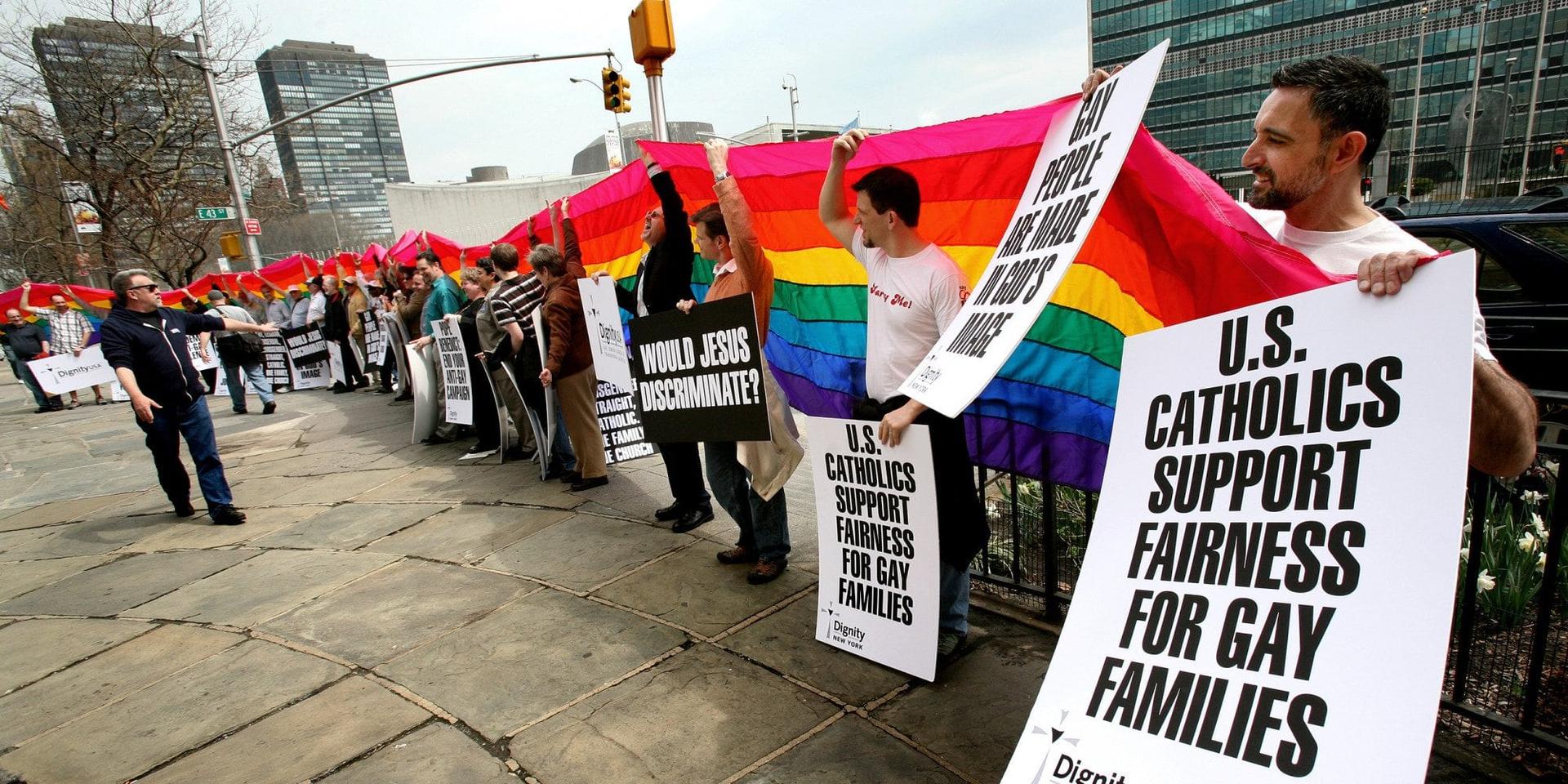This week aboard his plane returning to Rome from Armenia, Pope Francis once again made global news with a simple statement regarding apologies. He said that the Church must ask “forgiveness to the gay person who is offended.”
He went on to say that the Church must also ask forgiveness of “the poor, women who are exploited, children who are exploited for labor…and for having blessed so many weapons.”
It was the pope’s suggestion that the Church must apologize to gays that got the most attention — probably because past Church rhetoric when referring to homosexuality has appeared unduly harsh and, well, unforgiving.
The Catechism of the Catholic Church says, “homosexual acts are intrinsically disordered” and that the homosexual inclination is “objectively disordered.”
In a 2003 letter (issued by then-Cardinal Joseph Ratzinger, the current Pope Emeritus Benedict XVI), Pope John Paul II wrote: “Legal recognition of homosexual unions or placing them on the same level as marriage would mean not only the approval of deviant behavior…but would also obscure basic values which belong to the common inheritance of humanity.”
Church opposition to same sex unions and marriage remains intact.
In 2010, when he was still the Cardinal of Buenos Aires, the future Pope Francis said that same-sex marriage was “destructive of the plan of God” and was “a move of the Father of Lies who wishes to confuse and deceive the children of God.”
Apologies are a good thing. They imply a realization that we have wronged someone and are sorry for our words or actions that have offended.
In our Catholic tradition however, forgiveness is also dependent upon a commitment to strive not to offend in the same way again. In the Act of Contrition recited during the Sacrament of Reconciliation the penitent states: “I firmly resolve, with the help of Your grace, to sin no more and to avoid the near occasion of sin.”
Is it evident that the Church (or Pope Francis, for that matter) has made that kind of commitment with regard to gays?
This is a question many gay advocates and groups have posed since the comments of Pope Francis aboard his plane made headlines. Marianne Duddy-Burke, executive director of Dignity USA, a leading gay Catholic organization said, “A statement of remorse is only as good as the change in behavior that follows.”
Ryan Hoffman, co-executive director of Call to Action, called on Church officials to “reform teachings and practices that refer to gay people as ‘objectively disordered’ and ‘intrinsically evil.’”
German Cardinal Reinhard Marx, president of the German bishops’ conference and one of the nine cardinals who constitute the pope’s advisory council, is the cardinal who journalist Cindy Wooden of CNS referenced when posing the question about asking forgiveness of gays to Pope Francis on his plane.
He has been forceful in saying that the Church must do more than simply say it is sorry.
Marx has gone so far as to speak against opposing gay civil partnerships in Germany: “We have a moral position and that is clear, but the secular state has to regulate these partnerships and to bring them to a just position, and we as Church cannot be against it.”
This is an example of the concrete action that many gays are seeking from the Catholic Church. While they appreciate the overture of asking for forgiveness, they also feel that the real process of reconciliation and healing can only begin when there is a firm commitment not to continue the patterns of discrimination and oppression that have been fostered by insensitive language and a seemingly intractable theological perspective.
For many, a truly conciliatory praxis would entail an updating of the Catholic Catechism and a commitment to banish dismissive and patronizing rhetoric from all official Church documents. It would also mean that legal civil unions are supported as a means of protecting human rights and privileges.
For others, only equal sacramental marriage will do, but there is no evidence that any such changes are in the works.
Saying “I’m sorry,” is indeed important. Following up “I’m sorry” with action that demonstrates contrition is where the rubber meets the road.
That convergence of rhetoric and substantive change still appears to many to be a distant hope.














